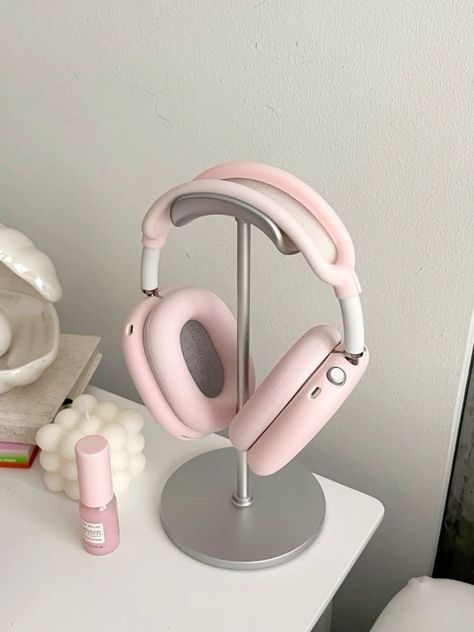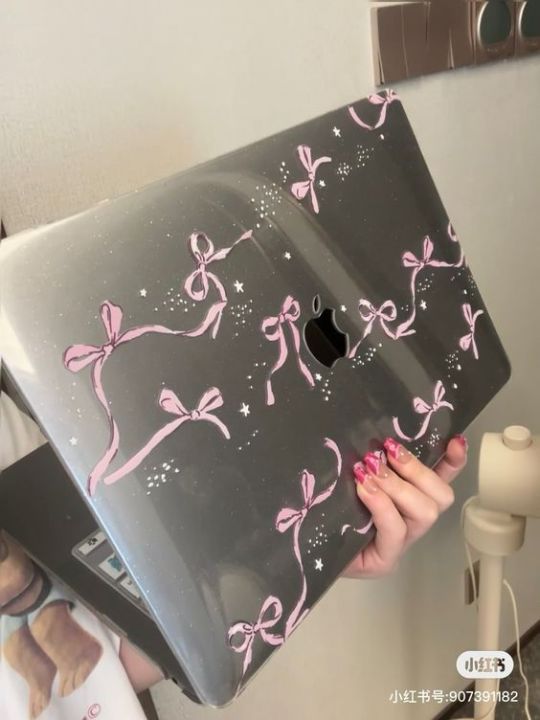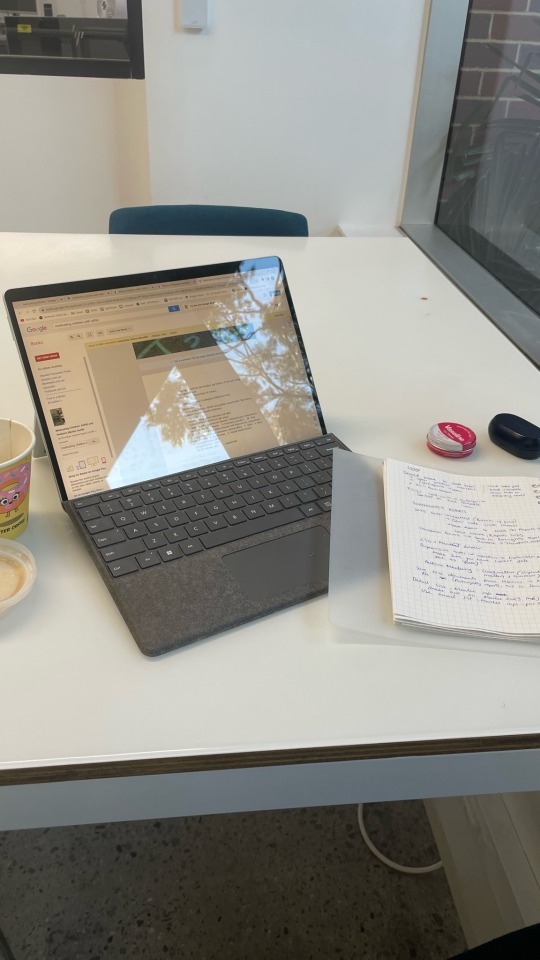#Intentionality
Explore tagged Tumblr posts
Text



The Pitt Costume Designer, Lyn Paolo, on how they sourced local Pittsburgh clothing to add realism to the series.
Dr. Robby's hoodie: www.beersoftheburgh.com
📷 @lynpaolo IG
#noah wyle#michael robinavitch#dr robby#the pitt#lyn paolo#costume design#intentionality#fashion appreciation#hoodie#beers of the burgh#the pitt max#season 1#medical drama#tv doctors#john carter#john truman carter iii#dr carter#ER#er nbc#er 1994
45 notes
·
View notes
Text
“mind your own magic and let people believe whatever they want to while you alchemize your intentions and become the best version of yourself regardless of their perceptions.”
— billy chapata
#poetry#wordsnquotes#poem#wnq quote#wnq writers#micro poetry#spilled ink#spilled thoughts#love#iambrillyant#billy chapata#african poet#magic#self love#blkcreatives#growth#writer#writers on tumblr#perception#intentionality#intentional living#alchemy#poetic prose#prose writing#short prose#prose poetry#prose#short poem#spilled prose#spilled feelings
490 notes
·
View notes
Text
MAKING YOUR PHONE TO BE INTENTIONAL



MAKE A VISION BOARD WALLPAPER. Create one that aligns with your goals and dream self, so that every time you pick your phone up, you’re reminded of your goals and future vision. Also, great for manifesting!
KNOW YOUR APP’S PURPOSE. For me, tumblr is a way I share advice and learn, YouTube I also learn from others, pinterest I get inspired, netflix is a way for me to unwind etc. If for any app, you cannot name a proper purpose/intent to use it daily or to help with your goals, delete it.
DECIDE WHICH TYPES OF APPS YOU WANT. If you have a new phone, or you want to completely reset your phone, write or type, the apps, that you want and those you don’t.
E.g I want to learn a language, practice mindfulness on the go, get some mental gratification that isn’t addicting, organise my life better and have a way to track my progress. I don’t want apps that support doom-scrolling, make me compare myself and are addictive.
BE MINDFUL OF WHAT YOU SIGN UP TO. Newsletters, social media, subscribing to YouTubers and so on, just think about your goals and vision and if they align with them, every time you think about signing up/subscribing.
HAVE NO PHONE TIME/ZONES. For me, my phone is not allowed to be used in bed. If I must use my phone, I have to get out of bed first. My phone is also not allowed during study time, so I put it in a separate room which makes it inconvenient.
REGULARLY DO A DIGITAL DECLUTTER. Delete any old contacts that you don’t talk to, unsubscribe from newsletters and YouTube channels, organise your socials etc. Removes space and helps us to see our phones with more clarity.
SET PURPOSEFUL WIDGETS. These can be anything, motivational quotes, your daily to-do list, reminders of your habits and so on. However, make sure you’re looking at them and they're not just taking up space.
#becoming that girl#green juice girl#clean girl#wellness era#wellness#wellbeing#becoming her#intentional living#intentionality#intentional life#digital minimalism#dumb phone#phones#minimalism#minimalistic#dream girl journey#dream girl#dream life#dream girl guide#dream girl tips#self control#self development#self growth#self healing#self love#self improvement#self confidence#self care
3K notes
·
View notes
Text




a soft and healthy life is all i want
186 notes
·
View notes
Text

#aesthetic#vibes#intentionality#words are spells#healing through words#words#the power of words#spellcaster#love#charms#space aesthetic#space art#alone with my thoughts
57 notes
·
View notes
Text

Everything changes when you begin to love yourself. You no longer send out energy of desperation or need to be filled from the outside. You become a powerful source that attracts better. The more you love who you are, the less you seek validation and approval.
#our journey to balance#reflections#self love#awareness#self awareness#conscious living#inspiration#gratitude#intentional living#naturecore#nature photography#writers on tumblr#cottagecore#nature aesthetic#nature lovers#nature images#forest#landscape#nature art#winter landscape#winter#intentionality#mindfulness#growth mindset#meditation#mental health
58 notes
·
View notes
Text

Living a Slow and Purposeful Life in a Busy World 🐚🍄🟫🌞✨
In a culture that celebrates busyness and productivity, it’s easy to feel like you’re always running out of time. Social media can make this worse by constantly showing us others’ achievements, travels, and seemingly perfect lives. But life doesn’t have to feel like a race. Choosing to slow down and live more intentionally can lead to greater fulfillment, deeper relationships, and a clearer sense of purpose.
(I wrote a similar post for Christian’s if you’re interest that as well)
Here’s how you can embrace a slower, more meaningful life:
1. Start Each Day with Intention
Instead of jumping into the day with your phone or to-do list, take a few minutes to reflect on what truly matters. Journaling, meditating, or simply sitting quietly can help you set the tone for the day.
Tip: Write down three things you’re grateful for each morning. Gratitude can shift your focus from what you need to do to what you already have.
2. Put People First
Rushing through life often means we miss out on meaningful connections. Prioritize quality time with friends and family, and be fully present when you’re with them. Listening, sharing, and laughing together can bring more joy than any achievement.
Tip: Schedule time for loved ones the way you would for important meetings or tasks.
3. Simplify Your Commitments
Overcommitting is a major source of stress and overwhelm. Take a closer look at your schedule and identify what truly adds value to your life. It’s okay to say no to things that don’t align with your priorities.
Tip: Ask yourself, Does this activity energize me or drain me? Let that guide your decisions.
4. Be Mindful of Social Media
Social media can make us feel like we’re not doing enough, as we compare ourselves to the highlight reels of others. Limiting your time online can free up mental space and help you focus on your own path.
Tip: Turn off notifications and set time limits for apps that cause stress or comparison. Consider unfollowing accounts that make you feel inadequate.
5. Embrace Rest and Leisure
Rest is essential, not a luxury. Taking breaks to relax, daydream, or engage in hobbies helps you recharge and approach life with more creativity and patience.
Tip: Plan downtime into your week, whether it’s reading a book, taking a walk, or simply doing nothing.
6. Practice Living in the Moment
It’s easy to get caught up in planning for the future or dwelling on the past. Slowing down means focusing on the present, whether you’re sharing a meal, working on a project, or simply breathing deeply.
Tip: Try mindfulness exercises like paying attention to your senses or taking a few deep breaths to anchor yourself in the here and now.
7. Redefine Success
Success doesn’t have to mean being the busiest or most accomplished. Consider what truly makes you happy and fulfilled. For many, success is about meaningful relationships, personal growth, and enjoying life—not checking off endless tasks.
Tip: Define your own version of success. What brings you joy and purpose? Focus on that instead of chasing society’s expectations.
8. Let Go of Perfectionism
Striving for perfection can leave you feeling burned out and anxious. Instead, embrace progress over perfection. Mistakes and imperfections are a natural part of life and often lead to growth.
Tip: Give yourself permission to do things “good enough” rather than aiming for an unattainable ideal.
9. Celebrate Small Wins
Slowing down doesn’t mean giving up on your goals—it means appreciating the journey. Take time to acknowledge your progress and celebrate small accomplishments along the way.
Tip: Keep a journal of your wins, no matter how small, to remind yourself of how far you’ve come.
Final Thought
Living a slower, more purposeful life is about finding balance and focusing on what truly matters. It’s not about doing less but about doing what adds value to your life and makes you feel connected to yourself and others. By stepping back from the rush, you can create space to breathe, grow, and enjoy the beauty of the present moment.
“Life isn’t about the number of breaths we take, but the moments that take our breath away.”
With love,
Thatgentlewife
#slow life#slow living#intentional living#healthy living#slowcore#intentionality#traditional values#tradblr#traditional femininity#traditional gender roles#traditional relationships#ex feminist#tradfem#traditional family#traditional wife#tradmen#trad wife#traditional masculinity#traditional marriage#traditionalism
38 notes
·
View notes
Text
The Ideals mechanic in Never Stop Making Magic is SO COOL! It takes what is one of my favorite things about TTRPG (the chance to experiment with methods of pursuing goals and impacting the world we live in) and makes it feel more within reach and applicable and I love it!
20 notes
·
View notes
Text
Christmas is built upon a beautiful and intentional paradox;
that the birth of the homeless should be celebrated in every home.”
C.K. Chesterton.

Closed Society (for my dear friend @rubenesque-dollyd-93 ).
#art#digital art#watercolor#christmas#buon natale#feliz navidad#frohe weihnachten#joyeux noel#merry christmas#عيد ميلاد مجيد#щасливого Різдва#Счастливого Рождества#intruders#quote of the day#quote of today#c.k. chesterton#beauty#intentionality#paradox#birth#birth of jesus#homelessness#celebration#home
76 notes
·
View notes
Text

23102023 1/30 days of intentionality
intentions for today:
health - meds, 5min exercise, hygiene, skincare
work - enjoy work day, crisis support training
study - begin catchup 4 child development unit
note to self: resting is not being lazy 📖: Atomic Habits by James Clear
reflection: was mostly intentional with my choices today, time management was a slight issue but intentions-wise, a good run
#30doi#intentions#intentionality#productivity#self care#productivity challenge#self care challenge#30 day challenge#studyblr#student#exam season#motivation#academia#studyspo#study motivation#original#dark academia#light academia
58 notes
·
View notes
Text
“october, plant me in soils of certainty and uproot me from any energy that brings chaos, weed out anything or anyone that disrupts my bloom and let the newfound awareness show me what deserves to be watered and what should be ignored. protect my garden and cultivate it with love.”
— billy chapata
#poetry#wordsnquotes#poem#wnq quote#wnq writers#micro poetry#spilled ink#spilled thoughts#love#iambrillyant#billy chapata#african poet#new month#affirmations#protection#growth#blkcreatives#writer#writers on tumblr#balance#intentionality#garden#bloom#protected#setting intentions#poetic prose#prose writing#short prose#prose poetry#prose
366 notes
·
View notes
Text

7 ways to reduce your screen time...
If you create content for a living, schedule your posts in one sitting so you don't have to spend as much time putting them out throughout the day.
Turn on your phone's grayscale setting — this overrides our natural inclination to click on the brightly colored app icons of addictive socials like Facebook, Twitter, Tumblr, and more.
Use a minimalist phone app. This removes icons altogether, and forces you to intentionally look for what you need from a list of apps as opposed to mindlessly clicking. I'm currently using an app called Oasis Launcher from the Google Play Store.
Turn off notifications from social media, so you are only prompted to spend time on those apps through your own natural inclination.
Oftentimes we reach for our phones because our hands are idle, not because we actually want to spend the time on them — find something to keep your hands busy. For me this is crochet, but it could be a book, a painting, or some other kind of project.
If you find that you spend a lot of time on certain social media apps, try uninstalling the app itself, and only using that form of media through your phone browser. I used to spend a lot of time window shopping on Amazon, and the added inconvenience of not having it available in one click has really helped deter me from spending so much time on it — now I only jump on and use it when I truly need to order something for the household.
Reevaluate your screen time at the end of every week. Many phones have a "digital well-being" feature now that allows you to set time limits on apps, and see how your screen time compares to previous weeks. This can be a great way to evaluate where you need to trim down your usage.

A bit about @princessproductivity! What is the 12 week year? 7 ways to organize your life...
#princess productivity#productivity#screen time#intentional screen time#self development#self improvement#self care#self discipline#self control#productivity tips#study blog#motivation#get motivated#positive thinking#mindset#life lessons#study motivation#100 days of productivity#productivity challenge#digital well being#digital wellness#minimalism#intentional living#intentionality#minimalistic#how to reduce screentime#content creation#content creator#youtube#youtuber
27 notes
·
View notes
Text
The Philosophy of Agency
The philosophy of agency is a branch of philosophy that explores the nature of human action, the capacity for individuals to act, and the conditions under which actions are performed. It is primarily concerned with understanding what it means to be an agent, how agency is exercised, and what factors influence or determine an agent’s actions.
Key Concepts in the Philosophy of Agency:
Agency:
Definition: Agency refers to the capacity of an individual to act independently, make choices, and impose those choices on the world. An agent is typically understood as a being with the ability to initiate actions based on desires, intentions, or reasons.
Central Question: What does it mean to be an agent, and what are the essential characteristics that distinguish agents from non-agents?
Free Will:
Relationship to Agency: Free will is a central concept in discussions of agency. It concerns the ability of individuals to make choices that are not determined by prior causes. The extent to which agents possess free will is a key area of debate in the philosophy of agency.
Debates: The debate between determinism (the view that all events, including human actions, are determined by preceding causes) and libertarianism (the view that free will is incompatible with determinism and that agents have the ability to choose freely) is crucial in understanding agency.
Intentionality:
Definition: Intentionality refers to the quality of mental states that are directed towards something, such as beliefs, desires, or intentions. An agent's actions are often said to be intentional if they are guided by specific goals or purposes.
Importance: The philosophy of agency examines how intentions translate into actions and how intentional actions differ from non-intentional or accidental behaviors.
Moral Responsibility:
Connection to Agency: Moral responsibility presupposes agency; that is, individuals are held morally responsible for their actions because they are agents capable of making decisions and acting on them.
Questions: How does the capacity for agency relate to moral responsibility? Are agents always morally responsible for their actions, or are there circumstances that mitigate or eliminate responsibility?
Autonomy:
Definition: Autonomy refers to the capacity of an agent to govern themselves, make their own decisions, and act according to their own principles and values.
Relevance: Autonomy is often discussed in relation to agency, especially concerning the conditions that must be met for an action to be truly autonomous (e.g., freedom from coercion or manipulation).
Action Theory:
Field of Study: The philosophy of agency is closely related to action theory, which investigates the nature of actions, the processes leading to actions, and the distinctions between different kinds of actions (e.g., intentional vs. unintentional, voluntary vs. involuntary).
Key Questions: What distinguishes an action from a mere bodily movement? What role do reasons, beliefs, and desires play in the performance of an action?
The Role of Rationality:
Rational Agency: Many philosophical accounts of agency emphasize the role of rationality in guiding an agent’s actions. Rational agents are those who act based on reasons that align with their beliefs and desires.
Debate: There is debate over whether all agency must be rational or whether irrational or non-rational actions can still be considered genuine exercises of agency.
Major Theories of Agency:
Causal Theories of Action:
Overview: Causal theories assert that actions are events caused by mental states, such as beliefs and desires. An action is typically seen as the outcome of a causal chain that begins with an agent's intention.
Non-Causal Theories of Action:
Overview: Non-causal theories challenge the idea that actions must be caused by prior mental states. Instead, they propose that actions can be explained through reasons rather than causes, emphasizing the role of rational deliberation and choice.
Compatibilism:
Overview: Compatibilism is the view that free will and determinism are compatible. Compatibilists argue that agents can be free even if their actions are determined by prior causes, as long as those actions align with their desires and intentions.
Libertarianism:
Overview: Libertarianism asserts that agents have free will and that this freedom is incompatible with determinism. Libertarians believe that agents have the power to make genuinely free choices that are not determined by past events.
Structural Theories of Agency:
Overview: These theories emphasize the structures within which agency is exercised, such as social, economic, or institutional frameworks. They explore how these structures enable or constrain individual agency.
The philosophy of agency is a rich and complex field that examines the nature of human action, the conditions for exercising agency, and the implications for moral responsibility and autonomy. By exploring these issues, philosophers aim to better understand what it means to be a free and responsible agent in a world of complex influences and constraints.
#philosophy#epistemology#knowledge#learning#education#chatgpt#ethics#psychology#Philosophy Of Agency#Free Will#Intentionality#Moral Responsibility#Autonomy#Action Theory#Rational Agency#Causal Theories#NonCausal Theories#Compatibilism#Libertarianism#Agency And Structure#Human Action#Philosophical Theories#Ethical Considerations
10 notes
·
View notes
Text

#aesthetic#romance#relationship#vibes#this or nothing#this would fix me#love#sexuality#intimacy#intentionality#pregnancy#breeding k1nk#healingthroughart#physical touch#curvesintherightplaces#preg k!nk
22 notes
·
View notes
Text

There is certainly nothing more important in life than what we do at the present moment. A person's entire life consists of nothing more than one moment piled on top of another, over and over again. Once enlightened to this, the inner warrior has nothing else to worry about, because she realizes that she has only to live in the present moment with the utmost intensity.
#our journey to balance#reflections#awareness#conscious living#inspiration#motivation#self awareness#self love#gratitude#cottage aesthetic#cottagecore#naturecore#wintering#slow living#present moment#intentional living#intentionality#enlightenment#spiritual enlightment#higher consciousness#healthy living#mental health#health and wellness#healthylifestyle#acceptance#peace
6 notes
·
View notes
Text
youtube
Perché tutti stanno di nuovo comprando il Walkman.
3 notes
·
View notes